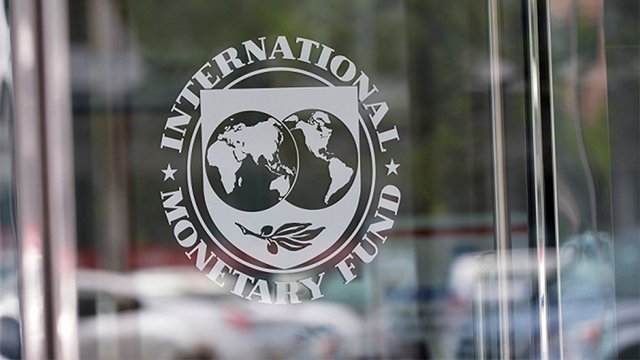IMF board approves allocation of $2.2 bln fifth tranche to Ukraine under EFF program

The Board of the International Monetary Fund (IMF) completed the fourth review of the EFF program for Ukraine and approved the allocation of the fifth tranche of approximately $2.2 million (SDR1.66 billion), which will be used to support the budget.
"Ukraine’s performance remains strong under the EFF despite challenging conditions. All quantitative performance criteria for end-March were met, and all structural benchmarks through end-June were implemented on time or with a short delay," the fund said.
"The Ukrainian economy continues to be resilient although the outlook remains subject to exceptionally high uncertainty. Sustained reform momentum and timely disbursement of external support are necessary to safeguard macroeconomic stability, restore fiscal and debt sustainability, and enhance institutional reforms to lay the path to European Union accession," the IMF stressed.
"The economy was more resilient than expected in the first quarter of 2024, with robust growth outturns, continued disinflation, and the maintenance of adequate reserves. However, the outlook for the remainder of the year and into 2025 has worsened since the Third Review, largely due to devastating attacks on Ukrainian energy infrastructure and uncertainty about the length of Russia’s war against Ukraine; overall, the outlook remains subject to exceptionally high uncertainty," the report reads.
“Russia’s invasion of Ukraine continues to have a devastating social and economic impact on Ukraine. Despite the war, macroeconomic and financial stability has been preserved through skillful policymaking by the Ukrainian authorities as well as substantial external support," said Kristalina Georgieva, Managing Director of the IMF.
"The program remains fully financed with an external financing envelope of US$122 billion in the baseline and US$141 billion in the downside over the four-year program period. Looking ahead, the recovery is expected to slow particularly given the attacks on Ukraine’s energy infrastructure, and the outlook is subject to high risks from the exceptionally high war-related uncertainty. Vigilance against these risks is necessary to enable timely responses if shocks materialize," she said.
According to the fund's press release, the GDP growth forecast for 2024 has been worsened to 2.5-3.5% from 3-4%, but inflation expectations for the end of the year have been reduced to 8% from 8.5%.
"Timely and predictable external disbursements together with strong domestic resource mobilization and careful liquidity management are necessary for Ukraine to meet its financing needs. Fiscal policies for the remainder of 2024, together with preparation for the 2025 budget, should be underpinned by steadfast revenue mobilization efforts aligned with the National Revenue Strategy. In this regard, measures that erode the tax base should be avoided and tax and customs administration together with the Economic Security Bureau of Ukraine (ESBU) strengthened," Georgieva said.
"Further strengthening medium-term budgeting, fiscal risks and transparency, and public investment management should advance in support of these goals. An external commercial debt treatment in line with the debt sustainability objectives under the program will be necessary to create the needed space for critical spending and restore debt sustainability in line with the authorities’ strategy," she added.
"Continued exchange rate flexibility under the managed exchange rate regime will help strengthen the resilience of the economy to external shocks. Moreover, continued disinflation combined with well-anchored inflation expectations and FX cash market stability suggest scope for further monetary policy easing. A state-dependent and gradual approach to the easing of FX controls remains essential to safeguard FX reserves. The authorities’ efforts to avoid monetary financing should continue," the expert noted.
"The financial sector remains stable, and efforts should continue to strengthen bank resolution and supervision, governance, and contingency planning. Steadfast reforms to enhance anti-corruption and governance frameworks, including ensuring the effectiveness of anticorruption institutions, remain essential to contain fiscal risks, secure donor confidence, enhance growth, and support the path to EU accession,” she emphasized.






